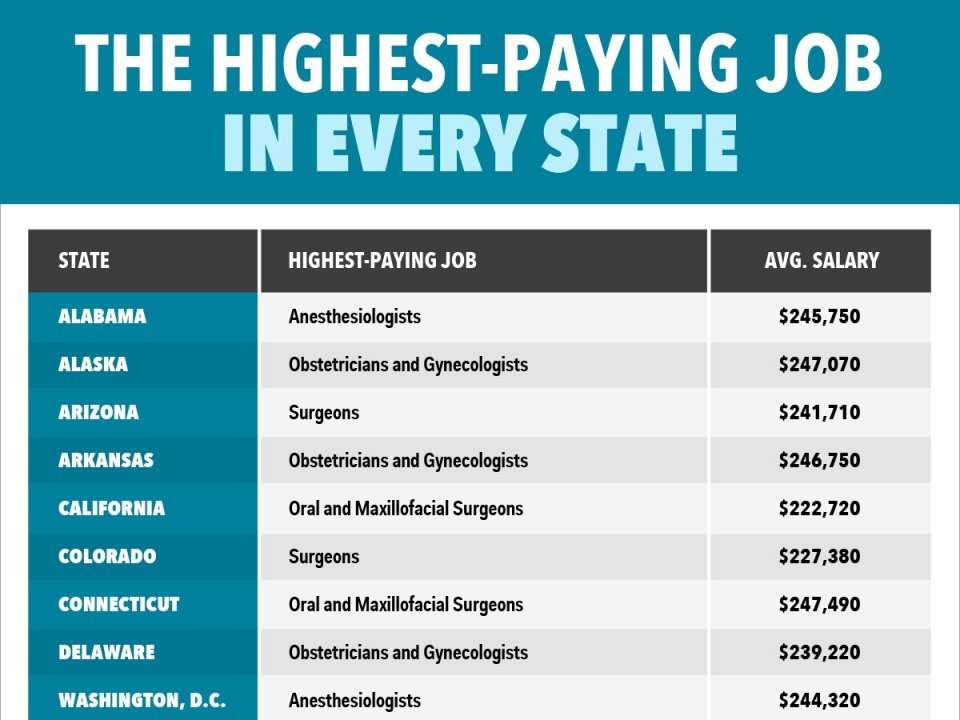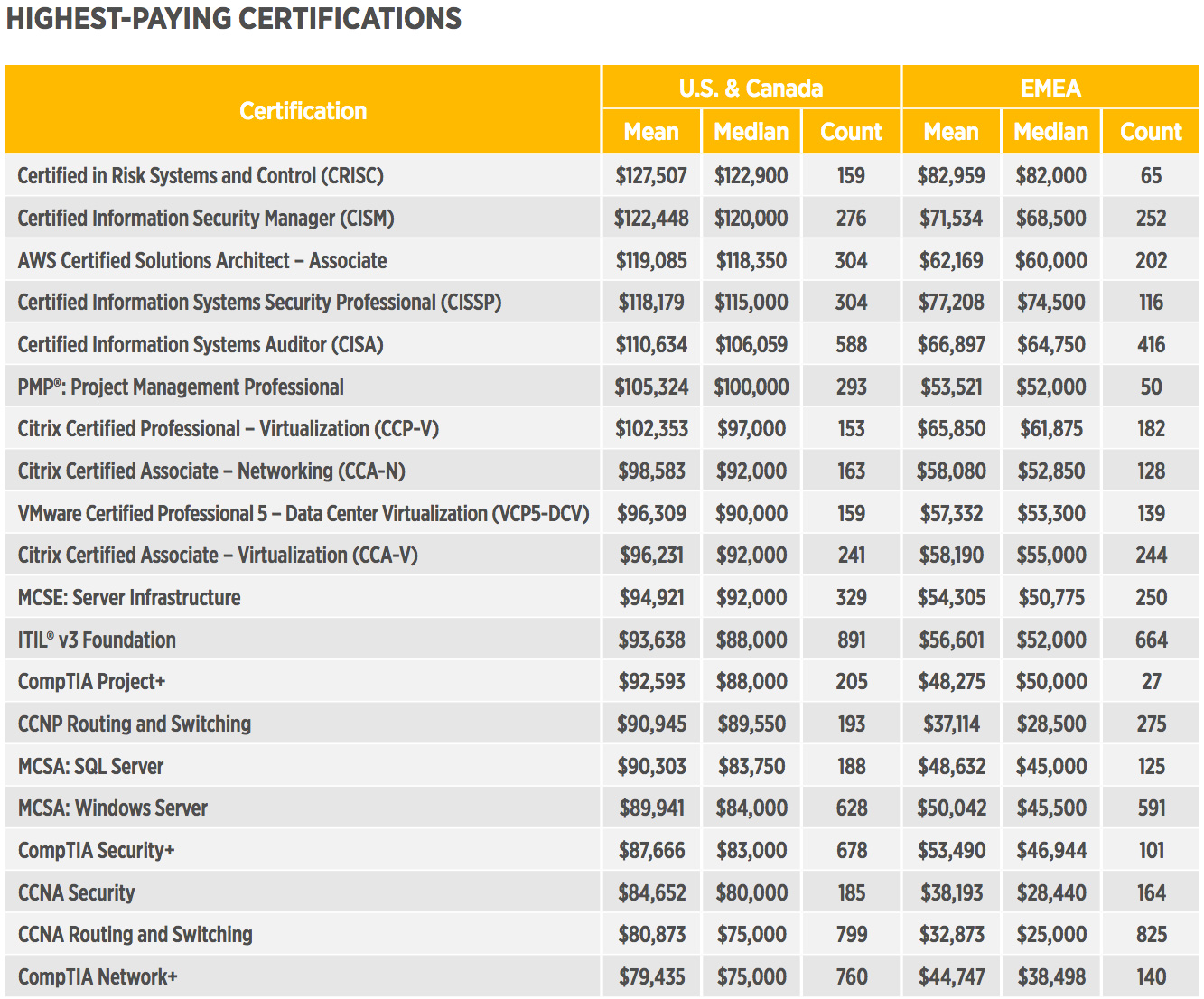What Makes a Job High-Paying and In-Demand?
A job that is both high-paying and in-demand is often the result of a combination of factors, including industry growth, skill shortages, and technological advancements. In today’s fast-paced and ever-evolving job market, it’s essential to understand what drives demand for certain professions and how to position oneself for success. The highest paying high demand jobs often require specialized skills and qualifications, which can lead to increased earning potential and job security.
Industry growth is a significant factor in determining the demand for certain jobs. As industries expand and evolve, the need for skilled workers increases, driving up salaries and benefits. For example, the healthcare industry is experiencing rapid growth due to an aging population and an increased focus on healthcare technology. As a result, jobs such as pharmacists, dentists, and physician assistants are in high demand and command high salaries.
Skill shortages also play a crucial role in determining the demand for certain jobs. When there is a shortage of skilled workers in a particular field, employers are willing to pay a premium to attract and retain top talent. This is particularly true in fields such as data science and artificial intelligence, where the demand for skilled workers far exceeds the supply.
Technological advancements are another key factor in shaping the job market. As technology continues to evolve and improve, new job roles are created, and existing ones are transformed. For instance, the rise of e-commerce has led to an increased demand for skilled workers in areas such as digital marketing and logistics management.
Understanding the factors that contribute to a job being both high-paying and in-demand is essential for anyone looking to advance their career or transition into a new field. By recognizing the trends and patterns that shape the job market, individuals can position themselves for success and increase their earning potential. Whether it’s pursuing higher education, gaining relevant work experience, or building a professional network, there are many ways to develop the skills and qualifications needed for the highest paying high demand jobs.
How to Identify Emerging Job Markets and Get Ahead of the Curve
Identifying emerging job markets and industries that are likely to experience growth is crucial for anyone looking to advance their career or transition into a new field. By staying ahead of the curve, individuals can position themselves for success and increase their earning potential in the highest paying high demand jobs. So, how can you identify emerging job markets and get ahead of the curve?
One effective way to identify emerging job markets is to research labor market trends. This can be done by analyzing data from reputable sources such as the Bureau of Labor Statistics, industry reports, and job market analytics tools. By examining trends and patterns in the job market, you can identify areas that are likely to experience growth and demand for skilled workers.
Networking with professionals in the field is another valuable way to identify emerging job markets. Attend industry events, join professional organizations, and connect with people on LinkedIn to gain insights into the latest developments and trends in your desired field. By building relationships with professionals who are already working in the industry, you can gain valuable advice and guidance on how to break into the field and succeed.
Another way to identify emerging job markets is to look for industries that are experiencing rapid growth and innovation. For example, the renewable energy industry is expected to experience significant growth in the coming years, driven by increasing demand for sustainable energy solutions. By identifying industries that are on the rise, you can position yourself for success and increase your earning potential in the highest paying high demand jobs.
Finally, it’s essential to stay adaptable and continuously develop new skills to succeed in emerging job markets. This can be done by pursuing higher education, gaining relevant work experience, and building a professional network. By staying ahead of the curve and continuously developing new skills, you can increase your earning potential and succeed in the highest paying high demand jobs.
Some of the emerging job markets that are expected to experience significant growth in the coming years include data science and analytics, cybersecurity, and healthcare technology. These fields are driven by increasing demand for skilled workers and are expected to offer high salaries and benefits. By identifying emerging job markets and developing the skills and qualifications needed to succeed, you can increase your earning potential and achieve success in the highest paying high demand jobs.
The Role of Technology in Shaping High-Paying Job Opportunities
Technological advancements have revolutionized the job market, creating new job roles and increasing demand for skilled workers in areas such as data science and artificial intelligence. The impact of technology on the job market is undeniable, and it’s essential to understand how it’s shaping high-paying job opportunities. In this section, we’ll explore the role of technology in creating high-paying job opportunities and what skills and qualifications are required to succeed in these fields.
One of the most significant ways technology is shaping the job market is through the creation of new job roles. For example, the rise of big data has created a high demand for data scientists and analysts who can collect, analyze, and interpret complex data sets. Similarly, the growth of artificial intelligence has created a need for AI engineers and developers who can design and implement AI systems.
Technology is also increasing the demand for skilled workers in areas such as cybersecurity and data protection. As more businesses move online, the need for skilled cybersecurity professionals who can protect against cyber threats is becoming increasingly important. Similarly, the growth of cloud computing has created a need for skilled professionals who can manage and secure cloud-based systems.
The highest paying high demand jobs in technology often require specialized skills and qualifications. For example, data scientists and AI engineers typically require advanced degrees in computer science, mathematics, or statistics. Cybersecurity professionals often require certifications such as CompTIA Security+ or CISSP. By developing these skills and qualifications, individuals can position themselves for success in high-paying job opportunities in technology.
Some of the highest paying job opportunities in technology include software engineering, data science, and AI engineering. These jobs often require advanced degrees and specialized skills, but they also offer high salaries and benefits. For example, software engineers can earn upwards of $100,000 per year, while data scientists and AI engineers can earn upwards of $150,000 per year.
In conclusion, technology is playing a significant role in shaping high-paying job opportunities. By understanding the impact of technology on the job market and developing the skills and qualifications required to succeed in these fields, individuals can position themselves for success in high-paying job opportunities.
Top High-Paying Jobs in Healthcare: Meeting the Demand for Skilled Professionals
The healthcare industry is one of the fastest-growing and highest-paying industries in the world. With an aging population and an increased focus on healthcare technology, the demand for skilled healthcare professionals is on the rise. In this section, we’ll explore some of the top high-paying jobs in healthcare, including pharmacists, dentists, and physician assistants, and discuss the skills and qualifications required for these positions.
Pharmacists are among the highest-paid professionals in the healthcare industry, with median salaries ranging from $120,000 to over $150,000 per year. To become a pharmacist, one must earn a Doctor of Pharmacy (PharmD) degree and obtain a license to practice. Pharmacists play a critical role in the healthcare system, dispensing medications and providing patient care.
Dentists are another high-paying profession in the healthcare industry, with median salaries ranging from $150,000 to over $200,000 per year. To become a dentist, one must earn a Doctor of Dental Surgery (DDS) or Doctor of Dental Medicine (DMD) degree and obtain a license to practice. Dentists diagnose and treat dental problems, perform surgeries, and provide patient care.
Physician assistants (PAs) are also in high demand, with median salaries ranging from $100,000 to over $120,000 per year. To become a PA, one must earn a master’s degree in physician assistant studies and obtain a license to practice. PAs work under the supervision of physicians, diagnosing and treating patients, and providing patient care.
Other high-paying jobs in healthcare include nurse practitioners, occupational therapists, and healthcare administrators. These professionals play critical roles in the healthcare system, providing patient care, managing healthcare facilities, and developing healthcare policies.
To succeed in these high-paying jobs in healthcare, one must possess strong communication and interpersonal skills, as well as a strong foundation in science and mathematics. Additionally, many of these professions require advanced degrees and licenses to practice. By pursuing higher education and gaining relevant work experience, individuals can position themselves for success in these high-paying jobs in healthcare.
The highest paying high demand jobs in healthcare often require specialized skills and qualifications, but they also offer high salaries and benefits. By understanding the skills and qualifications required for these positions, individuals can make informed decisions about their career paths and pursue high-paying jobs in healthcare.
Lucrative Career Paths in Finance: From Investment Banking to Financial Analysis
The finance industry is a hub for high-paying job opportunities, with roles such as investment bankers, financial analysts, and portfolio managers offering lucrative salaries and benefits. In this section, we’ll explore the skills and qualifications required for these positions and discuss the career paths available in the finance industry.
Investment bankers are among the highest-paid professionals in the finance industry, with median salaries ranging from $100,000 to over $200,000 per year. To become an investment banker, one must possess a strong foundation in finance, accounting, and economics, as well as excellent communication and analytical skills. Investment bankers work with clients to raise capital, advise on mergers and acquisitions, and manage financial transactions.
Financial analysts are also in high demand, with median salaries ranging from $60,000 to over $100,000 per year. To become a financial analyst, one must possess a strong foundation in finance, accounting, and economics, as well as excellent analytical and problem-solving skills. Financial analysts work with companies to analyze financial data, identify trends, and make recommendations for improvement.
Portfolio managers are responsible for managing investment portfolios for individuals, companies, and institutions. They must possess a strong foundation in finance, accounting, and economics, as well as excellent analytical and decision-making skills. Portfolio managers can earn median salaries ranging from $80,000 to over $150,000 per year.
Other high-paying jobs in finance include risk management, financial planning, and asset management. These professionals play critical roles in the finance industry, helping companies and individuals manage risk, plan for the future, and make informed investment decisions.
To succeed in these high-paying jobs in finance, one must possess strong analytical and problem-solving skills, as well as excellent communication and interpersonal skills. Additionally, many of these professions require advanced degrees and certifications, such as the Chartered Financial Analyst (CFA) designation. By pursuing higher education and gaining relevant work experience, individuals can position themselves for success in these high-paying jobs in finance.
The highest paying high demand jobs in finance often require specialized skills and qualifications, but they also offer high salaries and benefits. By understanding the skills and qualifications required for these positions, individuals can make informed decisions about their career paths and pursue high-paying jobs in finance.
The Growing Demand for Skilled Workers in Cybersecurity and Data Protection
The increasing demand for skilled workers in cybersecurity and data protection is a trend that is expected to continue in the coming years. As technology advances and more businesses move online, the need for skilled professionals who can protect against cyber threats and manage data effectively is becoming increasingly important. In this section, we’ll explore the skills and qualifications required for roles such as chief information security officers and data scientists, and discuss the career paths available in this field.
Chief information security officers (CISOs) are responsible for overseeing the cybersecurity strategy and operations of an organization. They must possess a strong foundation in computer science, cybersecurity, and risk management, as well as excellent leadership and communication skills. CISOs can earn median salaries ranging from $150,000 to over $250,000 per year.
Data scientists are responsible for collecting, analyzing, and interpreting complex data sets to help organizations make informed decisions. They must possess a strong foundation in computer science, statistics, and mathematics, as well as excellent analytical and problem-solving skills. Data scientists can earn median salaries ranging from $100,000 to over $170,000 per year.
Other high-paying jobs in cybersecurity and data protection include penetration testers, incident responders, and security analysts. These professionals play critical roles in protecting against cyber threats and managing data effectively, and can earn median salaries ranging from $80,000 to over $150,000 per year.
To succeed in these high-paying jobs in cybersecurity and data protection, one must possess strong technical skills, as well as excellent analytical and problem-solving skills. Additionally, many of these professions require advanced degrees and certifications, such as the Certified Information Systems Security Professional (CISSP) designation. By pursuing higher education and gaining relevant work experience, individuals can position themselves for success in these high-paying jobs.
The highest paying high demand jobs in cybersecurity and data protection often require specialized skills and qualifications, but they also offer high salaries and benefits. By understanding the skills and qualifications required for these positions, individuals can make informed decisions about their career paths and pursue high-paying jobs in this field.
In conclusion, the demand for skilled workers in cybersecurity and data protection is expected to continue growing in the coming years. By developing the skills and qualifications required for these roles, individuals can position themselves for success in high-paying, in-demand industries.
How to Develop the Skills and Qualifications Needed for High-Paying Jobs
Developing the skills and qualifications needed for high-paying jobs requires a strategic approach. In this section, we’ll provide advice and guidance on how to develop the skills and qualifications needed for high-paying jobs, including pursuing higher education, gaining relevant work experience, and building a professional network.
Pursuing higher education is a key step in developing the skills and qualifications needed for high-paying jobs. Many high-paying jobs require advanced degrees, such as master’s or doctoral degrees, in fields such as business, engineering, or computer science. Additionally, many employers require certifications or licenses in specific areas, such as accounting or law.
Gaining relevant work experience is also essential for developing the skills and qualifications needed for high-paying jobs. Many high-paying jobs require several years of work experience in a related field, and employers often look for candidates with a proven track record of success. Internships, apprenticeships, and volunteer work can also provide valuable work experience and help build a professional network.
Building a professional network is another important step in developing the skills and qualifications needed for high-paying jobs. Attend industry events, join professional organizations, and connect with professionals in your field on LinkedIn. Building relationships with professionals in your field can provide valuable advice, mentorship, and job opportunities.
Developing soft skills, such as communication, teamwork, and problem-solving, is also essential for success in high-paying jobs. Many employers look for candidates with strong soft skills, as they are essential for success in most industries. Consider taking courses or attending workshops to develop your soft skills.
Finally, staying adaptable and continuously developing new skills is essential for success in high-paying, in-demand industries. The job market is constantly changing, and employers look for candidates who are able to adapt to new technologies, trends, and innovations. Consider taking courses or attending workshops to stay up-to-date with the latest developments in your field.
By pursuing higher education, gaining relevant work experience, building a professional network, developing soft skills, and staying adaptable, individuals can develop the skills and qualifications needed for high-paying jobs. Remember, developing the skills and qualifications needed for high-paying jobs takes time and effort, but it can lead to a rewarding and lucrative career.
Conclusion: Unlocking Your Earning Potential in High-Demand Industries
In conclusion, the job market is constantly evolving, and staying adaptable and continuously developing new skills is essential for success in high-paying, in-demand industries. By understanding the factors that contribute to a job being both high-paying and in-demand, identifying emerging job markets, and developing the skills and qualifications needed for high-paying jobs, individuals can unlock their earning potential and achieve success in their careers.
The highest paying high demand jobs often require specialized skills and qualifications, but they also offer high salaries and benefits. By pursuing higher education, gaining relevant work experience, and building a professional network, individuals can position themselves for success in these high-paying jobs.
Additionally, staying up-to-date with the latest developments in your field and continuously developing new skills is essential for success in high-paying, in-demand industries. The job market is constantly changing, and employers look for candidates who are able to adapt to new technologies, trends, and innovations.
By following the advice and guidance provided in this article, individuals can develop the skills and qualifications needed for high-paying jobs and unlock their earning potential. Remember, success in high-paying, in-demand industries requires hard work, dedication, and a willingness to continuously learn and adapt.
In the end, the key to success in high-paying, in-demand industries is to stay adaptable, continuously develop new skills, and be open to new opportunities. By doing so, individuals can unlock their earning potential and achieve success in their careers.






